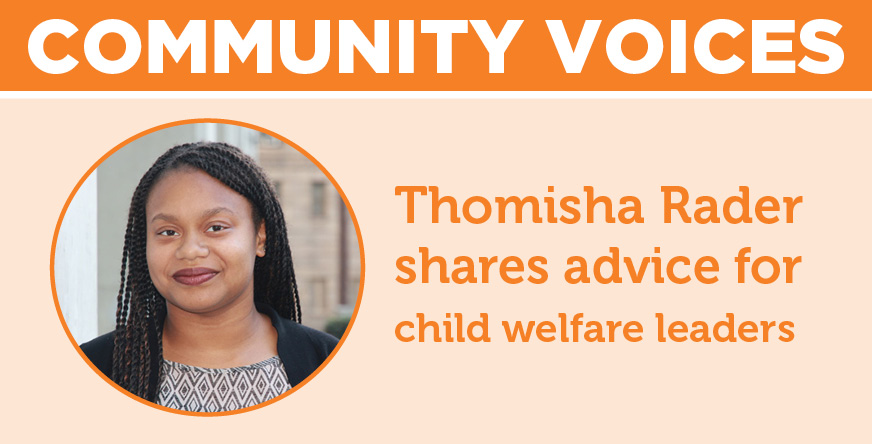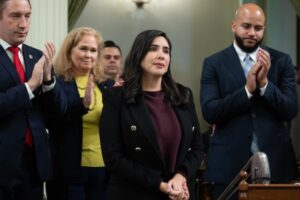 This month, we are featuring a range of voices from our community of outstanding young leaders who have experienced foster care firsthand. Recently, DCFS announced the search for a new director, and our young leaders have offered their thoughts on the qualities and concerns that they hope will factor into the hiring process.
This month, we are featuring a range of voices from our community of outstanding young leaders who have experienced foster care firsthand. Recently, DCFS announced the search for a new director, and our young leaders have offered their thoughts on the qualities and concerns that they hope will factor into the hiring process.
Thomisha Rader is a peer advocate at the Children’s Law Center and a member of the Opportunity Youth Collaborative Young Leaders. These are her words:
It’s really important for social workers to have the support they need in order to support clients who are in foster care. There should be a realistic workload for the social workers so that they aren’t rushing when they are working with their clients. I’d like to see DCFS have assistant social workers or someone else the client can go to if the social worker is busy.
I work with AB12 non-minor dependents around housing, employment, education and more. I try not to force anything on any of my clients and I really try to remind them that we do care about them. It’s all about talking to the clients without micromanaging or treating them like helping them lead their lives is just a job for us. They can sense that. We’re here because of the clients; showing them that we really do care about them is so important. Cultural insight is also important. We need a leader in child welfare who makes people comfortable, so that everyone affected by foster care knows their voice is being heard.
If I could change just one thing, I would make sure that all of our social workers understand trauma and don’t approach our clients from a conservative point of view. I’m a big advocate for education; education saved my life, and I want all of our clients to have the opportunity to go to college. But I really want social workers to understand how to avoid forcing things. We need to design everything we do around the needs of the individual client, rather than coming at our clients with an idea of what we think they should be. It doesn’t help a client to impose your own values on them. Every individual client is different. We can’t put two different people in the same situation and expect both to perform the same way. Sometimes forcing a client to pursue something like college when they aren’t ready just because you want to see certain outcomes is like putting an Olympic champion in a race with an amateur. You need to wait until they are ready to run the race. Find out what works for them. Let them test the waters. Empower them. I want a system that is open to learning and changing in order to improve the lives of our clients, instead of one that just wants the same outcomes for everyone.
If the child welfare and DCFS leadership understands that our clients are traumatized and they need supportive systems, that’s the first step. I want to focus on the values and priorities of our leadership candidates and whether they are capable of really understanding our clients.




